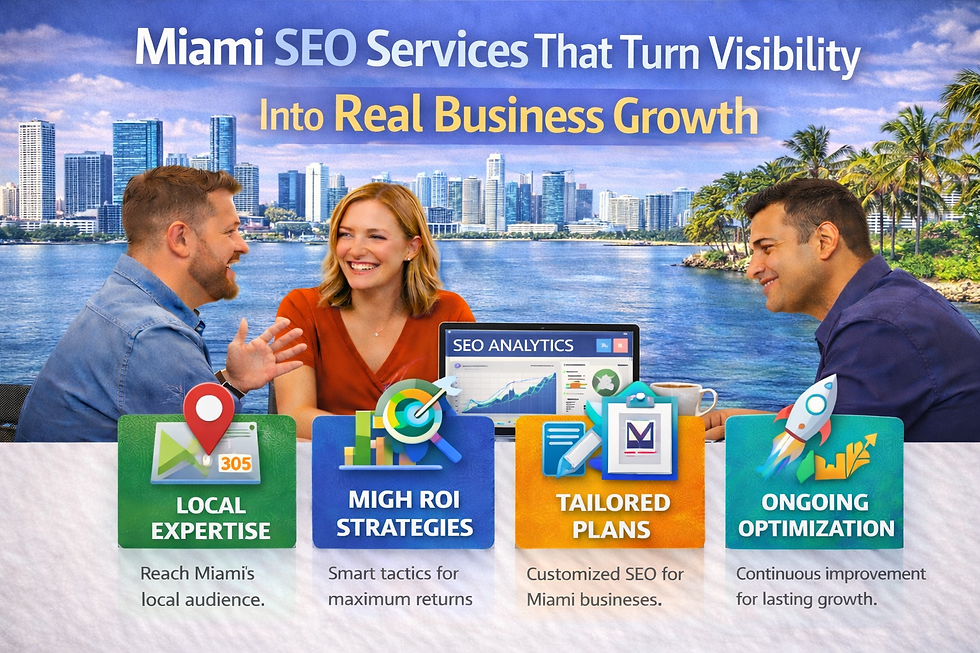Travel SEO in Miami: Top Strategies to Boost Your Tourism Business Online
- Digital Guider
- Apr 30, 2025
- 2 min read

Miami’s tourism industry is booming, but standing out in search results takes more than just a beautiful website—it takes smart travel SEO strategies tailored to local and global audiences. Whether you run a hotel, tour company, or travel agency, optimizing your online presence can significantly increase bookings and visibility.
1. Target Local and Travel-Related Keywords
Start by researching keywords that combine travel intent with Miami-specific terms, such as “Miami boat tours,” “best Miami hotels for couples,” or “family-friendly activities in Miami.” Use these in your website content, meta descriptions, and headings to attract both tourists planning ahead and those searching on the go.
2. Optimize Your Google Business Profile
Claim and fully optimize your Google Business Profile. Add high-quality photos, detailed service descriptions, accurate hours, and collect reviews from happy visitors. This boosts your visibility in local map packs and mobile searches—essential for travel-related businesses.
3. Create Content Around Local Attractions
Develop blog posts, guides, or videos that highlight popular attractions like South Beach, Little Havana, or the Wynwood Walls. Topics like “Top 10 Things to Do in Miami in Summer” or “Best Day Trips from Miami” not only help with SEO but position your brand as a helpful local expert.
4. Build Backlinks from Travel Blogs and Directories
Reach out to travel bloggers, tourism websites, and local influencers for guest posting or collaboration opportunities. High-quality backlinks from relevant sources improve domain authority and help you rank higher for competitive Miami travel keywords.
5. Ensure Mobile-Friendly, Fast-Loading Pages
Most travelers search from their phones. Make sure your website is mobile-optimized, loads quickly, and offers seamless navigation and booking options. A good user experience helps reduce bounce rates and boosts your SEO rankings.
6. Use Structured Data Markup
Implement schema markup for local business, events, reviews, and FAQs. This helps search engines better understand your content and can lead to rich results in search listings—making your listings more attractive and clickable.
7. Encourage and Manage Online Reviews
Tourists rely heavily on reviews. Encourage satisfied customers to leave positive feedback on Google, TripAdvisor, and Yelp. Respond professionally to all reviews to build trust and show excellent customer service.
Conclusion:
Travel SEO in Miami is about visibility, trust, and timing. By targeting the right keywords, optimizing your local presence, and creating helpful, location-specific content, you can attract more tourists, boost bookings, and grow your travel business in one of the world’s most competitive destinations.



Comments